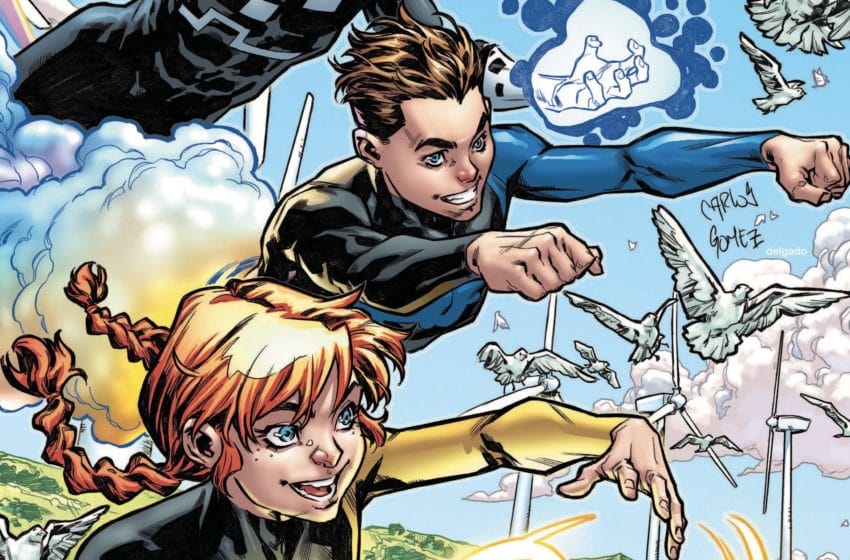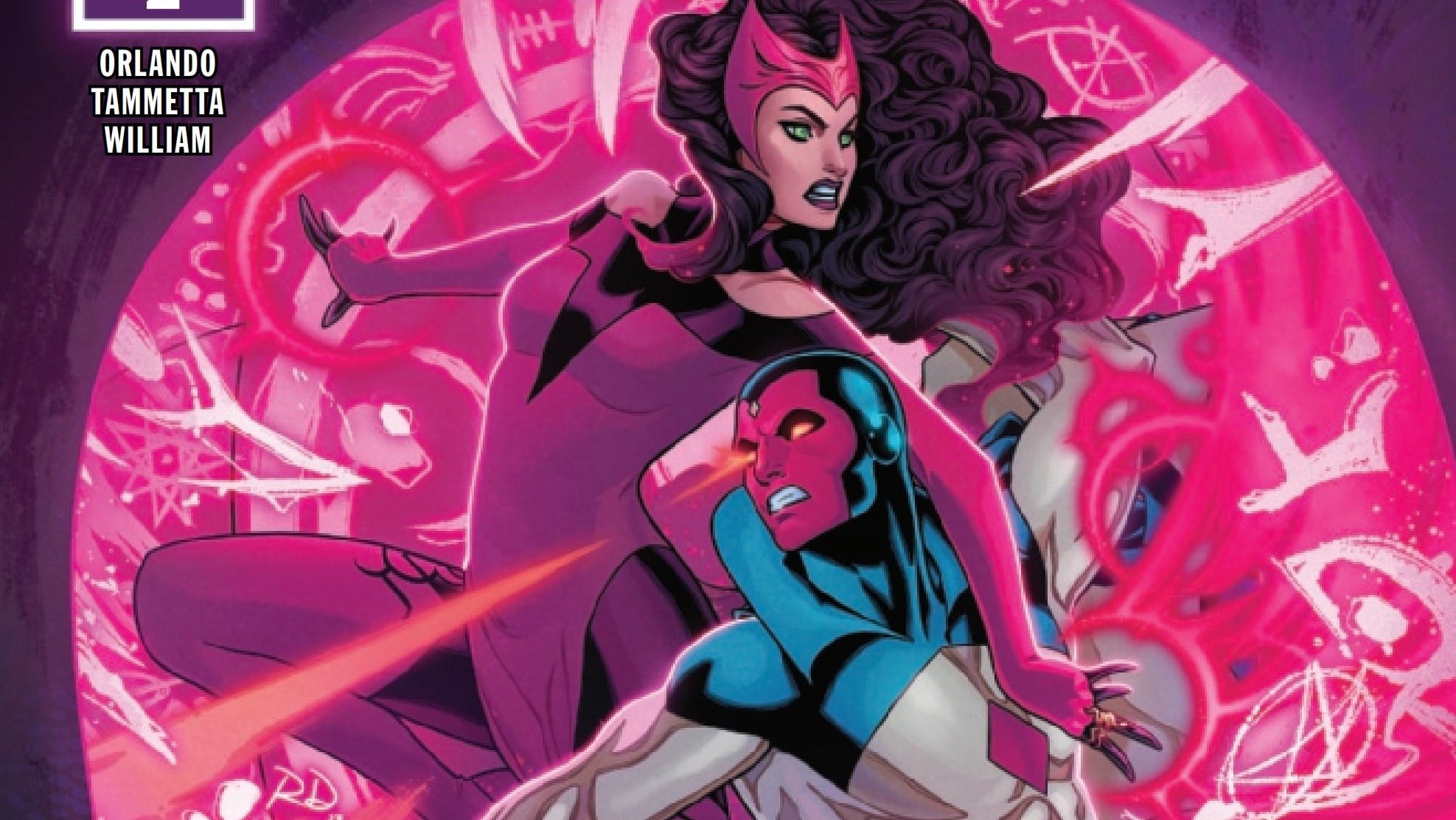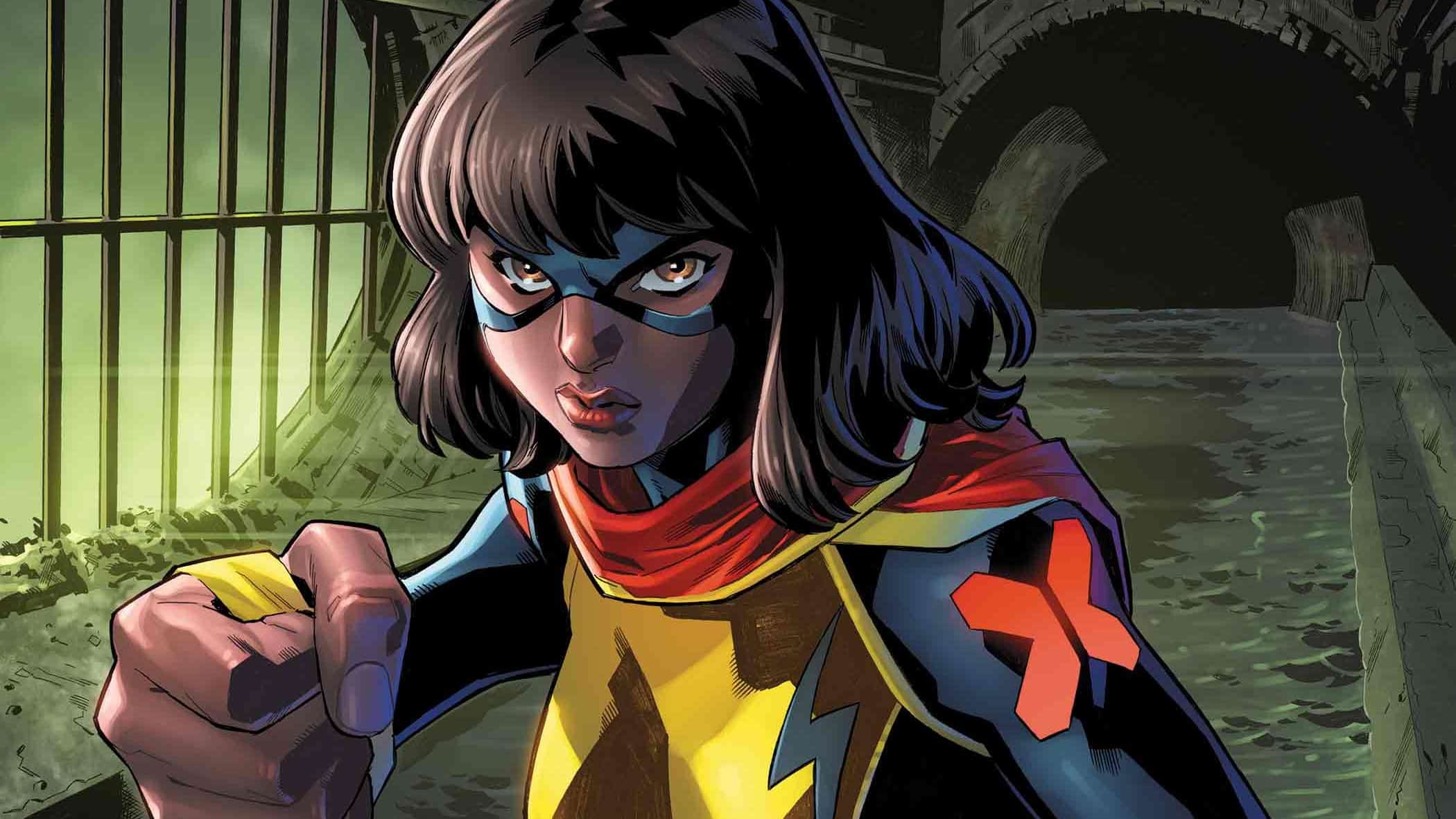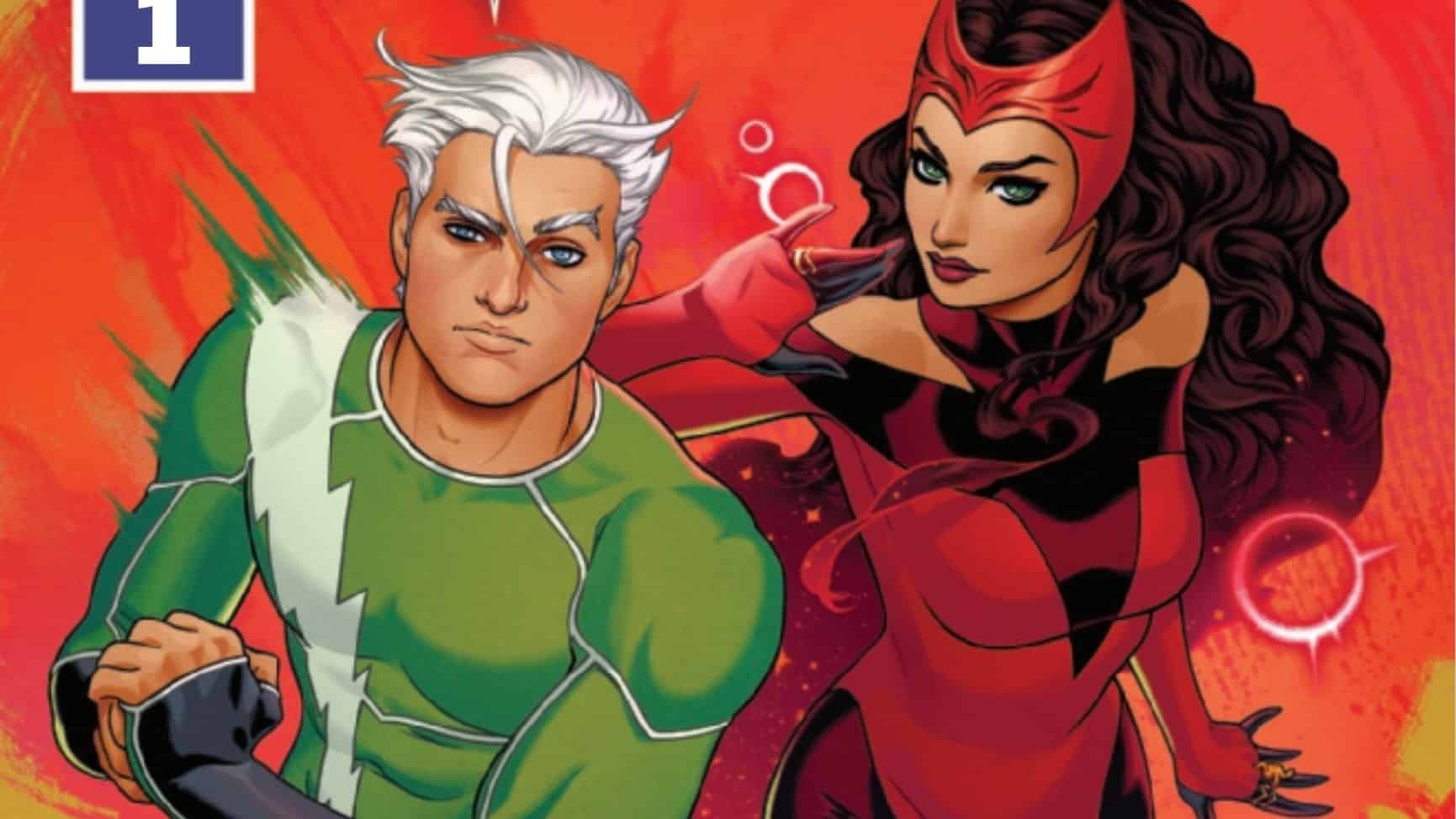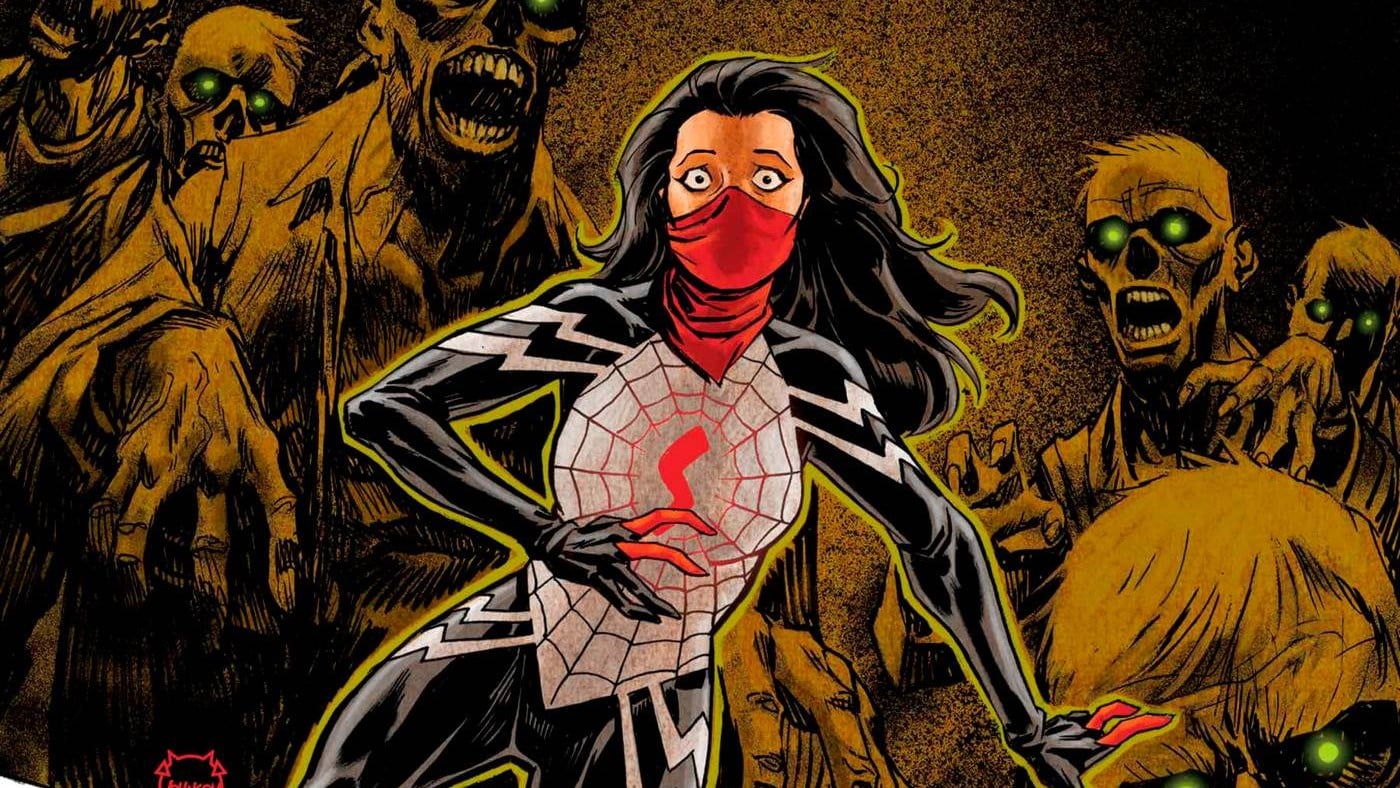Hey kids! Make sure your state-approved mentor, as per Kamala’s Law, knows you’re about to read the latest Power Pack, in which our youthful quartet discover too late that Agent Aether is a big old jerk! Power Pack #3, writing by Ryan North, art by Nico Leon, colored by Rachelle Rosenberg, lettered by Travis Lanham.
When we last saw these plucky kids, they had returned to an 80s status quo ante, superhero’ing about under the improbably ignorant eyes of their well-meaning parents in an improbably comfy New York apartment. Two big differences separated these kids from their first incarnations. 1: Julie’s definitely a teen old enough to text back and forth with her girlfriend, who appears to still be Rikki Barnes. 2. Kamala’s Law requires all super-minors to have super-mentors, on pain of arrest. Last ish Power Pack reluctantly settled on the new-to-us goodie-goodie Agent Aether, who had them in a lab of his own, “generating clean, safe electrical power.”.
Of course it’s a trap, and this issue we see how and why, through a thin film of lovely science jokes, the kind Ryan North brings to everything. Power Pack realize their powers have been sapped when they fight the delightfully skull-faced, barely motivated Taskmaster; using ingenious teamwork, they defeat him anyway, then head to AA’s to ask him what’s up. He offers to give them back their powers by running his generators backwards, but Julie and Alex Power point out that generators do not remotely work that way. Then AA reveals His True Identity and Peril Ensues. It’s an abrupt ending to a storyline that could have turned into a long game about the Powers’ new and sketchy mentor. But that’s not how Ryan North rolls.
It’s a nothing plot, a Silver Age fill-in issue sort of plot. But– like the best Silver Age stories– it thrives on personality, and on the art for which it provides an excuse. Nico Leon and Rachelle Rosenberg are absolutely on: these moving bodies in their urban playground are what Saturday morning cartoons from the 80s always wanted to be (but couldn’t, because Leon and Rosenberg can take so much more care with each panel than animators ever could). They come from the future with clean lines and big, bright colors (the Powers aren’t Powers without big, bright colors). And they come with asymmetric, or trapezoidal, panels when the action speeds up. Leon’s lovely work in Ms. Marvel never got this stylized, this streamlined, and his art for the Mariko Tamaki She-Hulk had nothing at all in common with these always-in-action figures: he’s good at adapting his art to the script. I love it.
Also worth some love: Julie Powers’s narration. She comes to this plot with serious thoughts about how to be a good person, how to make your life count even though it might end tomorrow. (I know Julie’s no longer with Karolina, and I know Power Pack currently belongs in the orbit of the Fantastic Four, but man, does this comic vibe like an issue of Runaways.) I don’t know how much longer Julie can plausibly keep adventuring with this team– Power Pack feels less like something you can grow into than like something you can outgrow. But she’s back with her sibs, and in mortal peril, for now.
Stephanie Burt is Professor of English at Harvard. Her podcast about superhero role playing games is Team-Up Moves, with Fiona Hopkins; her latest book of poems is We Are Mermaids. Her nose still hurts from that thing with the gate.

